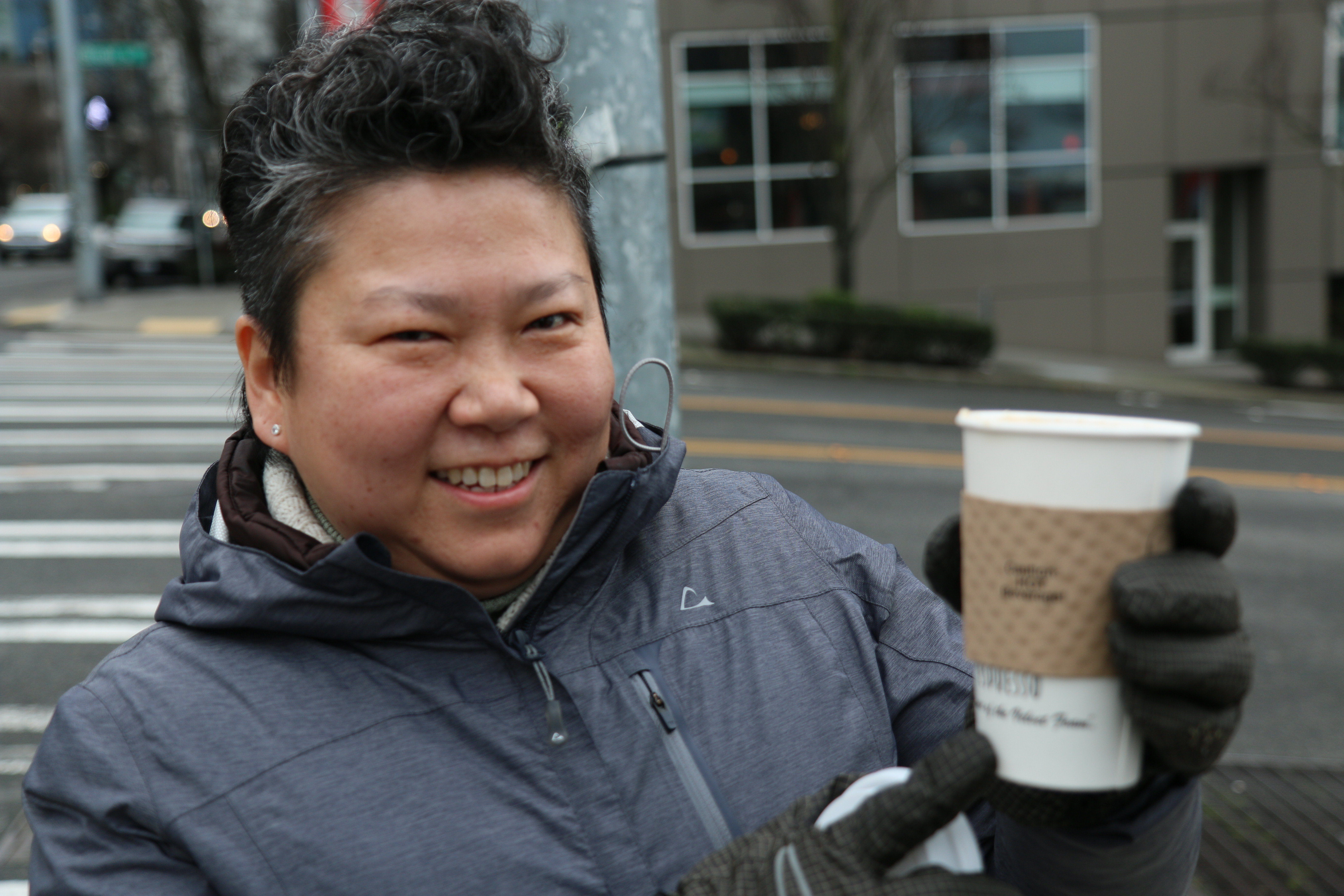SHIRLEY HSIN-I LIU was born in Taiwan and came to the US when she was three years old. She identifies as a queer Chinese American, and her preferred gender pronouns are she and they. She currently works at UC Berkeley as a program manager within the Institute of East Asian Studies.
Shirley grew up in South Carolina, where, especially at that time, there wasn’t much racial diversity. “I was living in white suburbia,” she says. In her 700-person high school, she was one of two Asian American students in her graduating class. It was an isolating experience – she wasn’t exposed to others who shared an Asian American experience.
After high school, Shirley attended a large public university in North Carolina, which was also mostly white. Later, she moved to San Francisco and came out to herself and her (still mostly white) community. Recently, she lived in Taiwan for six years.
“In Taiwan I was really connecting into my own heritage of being born in Taiwan and ethnically Chinese, and after the experience moving back to the Bay Area, it was really clear that I wanted to connect and find a community where I could be able to express and share all my experiences with identity.”
That’s what led her to get involved with APIQWTC (Asian Pacific Islander Queer Women and Transgender Community) and then with API Equality – Northern California. Of these experiences, she says,
“I felt really comfortable and supported in my community. It made me feel very rooted. I know how important it is to have this kind of community available, which is why I feel very passionate about the work at API Equality.”
Shirley also loves that there’s a lot of consciousness at APIENC about having people feel welcomed. She highlights that staff and volunteers are very loving.
Currently, Shirley is also on the leadership committee of APIQWTC. In the past, she’s also done energy healing and spiritual service in Taiwan, as well as in India. Shirley serves on APIENC’s fundraising committee.
Shirley wants the LGBTQ API community to continue to grow. She hopes that the Dragon Fruit Project’s public presence can be a way for more people to get involved:
“For people like me who have lived in places without a lot of Asian Americans, this is a way for us to keep growing… I hope we can learn to be really understanding of where we come from, and I hope we can find solid footing, drawing upon challenges of our personal experiences and transforming it into action within our community and beyond as well.”
A fun fact about Shirley:
She used to practice Chinese knife massage, which is only practiced in Taiwan.

